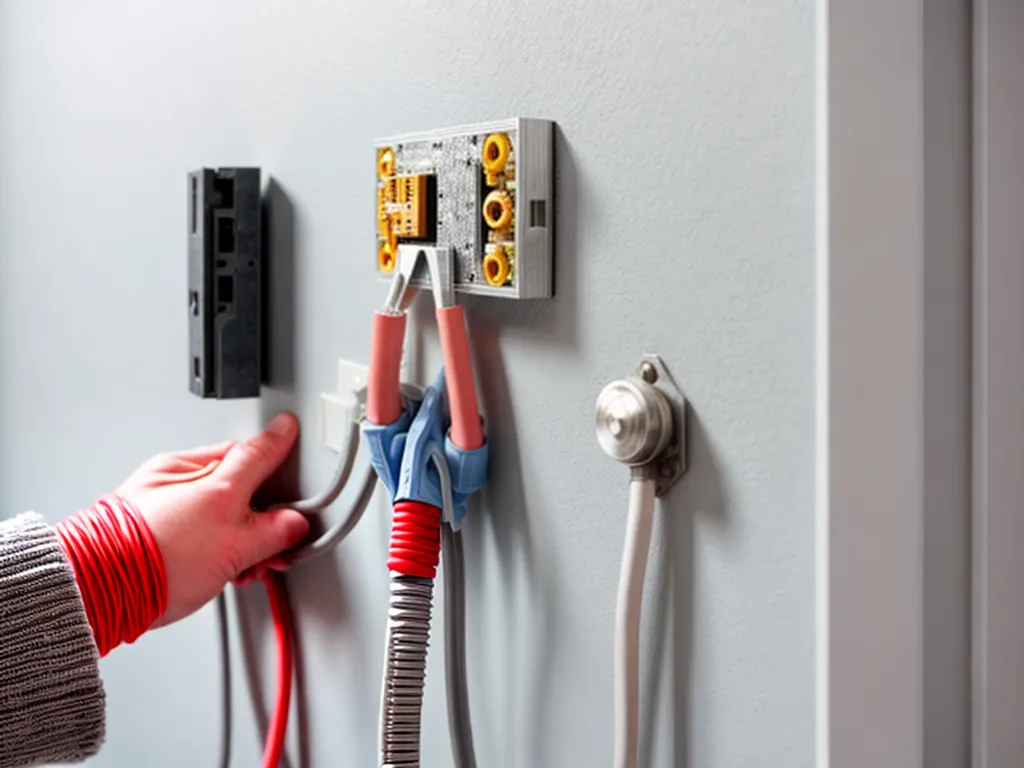
How to Wire Your Home with Aluminum
Why Choose Aluminum for Home Wiring?
Aluminum wiring became popular in homes built between 1965 and 1973 because it is less expensive than copper wiring. However, aluminum has some important differences from copper that make it more challenging to work with:
-
Aluminum has higher electrical resistance than copper, which means more energy is lost as heat when electricity flows through it. This can make aluminum wires run hotter.
-
Aluminum expands and contracts more than copper with temperature changes. This can loosen connections and cause wires to overheat.
-
Aluminum corrodes more easily than copper when exposed to air and moisture. Corrosion increases resistance and can cause connections to fail.
Despite these challenges, aluminum wiring can be perfectly safe if installed correctly and maintained properly. The keys are using the right materials, making solid connections, and routine inspection.
Choose the Right Materials for Aluminum Wiring
Using the proper materials is essential to create safe and lasting connections with aluminum wires:
-
Wire connectors rated CO/ALR must be used. These are specifically designed and tested for joining copper and aluminum. Normal wire nuts should never be used with aluminum.
-
Anti-oxidant paste containing zinc dust must be applied to all connections. This prevents oxidization and increases conductivity.
-
Only use switches and outlets labeled CO/ALR. These have more surface area for better connections.
-
For larger wires, use copper pigtails to transition from aluminum to receptacles. Pigtails reduce resistance and overheating.
-
When in doubt, consult an electrician for the right materials for your situation. Improper connections can lead to dangerous results.
Making Solid Connections
Proper technique is crucial when connecting aluminum wires to create secure, low-resistance joins:
-
Thoroughly clean and scuff the wires with sandpaper to expose fresh, conductive metal before connecting.
-
Apply a thin coat of anti-oxidant paste to each wire end. This prevents oxidization.
-
Tightly twist wires together with pliers and hold firmly while tightening connectors. Aluminum wires compress more than copper.
-
Tighten connectors to the manufacturer's torque specs. Overtightening can damage the wire; undertightening creates a poor connection.
-
Gently tug wires after tightening to confirm a solid join. Loose connections will only degrade over time.
-
For large wires, crimp proper lugs using a compression tool. Lugs provide maximum surface area for low-resistance connections.
Inspect and Maintain Connections
Because aluminum wire connections are vulnerable to loosening and corrosion over time, periodic inspection and maintenance is essential:
-
Check connections are tight and not overheating by touching them briefly. Warm or loose wires require immediate remediation.
-
Look for discolored, pitted, or bulging wires which indicate oxidization; remediate compromised sections immediately.
-
Retighten connections that may have loosened from vibrations or temperature fluctuations.
-
Test GFCIs to ensure proper function. Defective GFCIs cannot prevent electrocution from damaged wiring.
-
Have an electrician inspect aluminum wiring every 5 years or during any renovation or rewiring work. They can detect problems not visible to an untrained eye.
-
Consider pigtailing sensitive connections and GFCI protecting circuits during renovations to reduce risks.
With diligent installation, inspections, and maintenance, aluminum wiring can deliver safe and reliable electrical power throughout the home. But skipping key steps and materials can lead to catastrophic failures. When in doubt, consult an experienced electrician.
Frequently Asked Questions
Is it safe to use electrical outlets and switches designed for copper wiring with aluminum wiring?
No. You should only use devices labeled CO/ALR with aluminum wiring. CO/ALR outlets and switches are engineered to account for aluminum's properties to create a safe, low-resistance connection. Using copper-only devices risks overheating, arcing faults, and fire.
Can standard wire nuts be used to connect aluminum wiring?
Absolutely not. Regular wire nuts are only designed for joining copper wires. Only wire connectors specifically rated and tested for copper-aluminum connections should be used with aluminum wiring. These connectors bite through the oxidation on aluminum to make a secure join.
How can I identify aluminum wiring in my home's electrical system?
Aluminum wiring is the same size but lighter weight than copper. It will have a dull silver color rather than copper's orange hue. Labels reading "AL" or "Aluminum" may also be present. Check wire ends in outlets and junction boxes for positive identification. An electrician can also locate and evaluate all aluminum wiring.
Is aluminum wiring illegal or prohibited from use?
No, aluminum wiring is still legal and can be safely installed and maintained with the proper materials and techniques. However, most electricians strongly prefer copper for its conductivity, longevity, and ease of use. Some jurisdictions restrict aluminum wiring in certain applications. Check your local electrical code for any area-specific aluminum wiring regulations.
Can I just replace all the aluminum wiring in my house with copper?
You can, but it will be expensive. Complete replacement of aluminum wiring with copper requires rerunning of all circuits. Often, strategic pigtailing of connections to copper or adding GFCI protection provides adequate safety at a lower cost. Consult an electrician to evaluate your options.